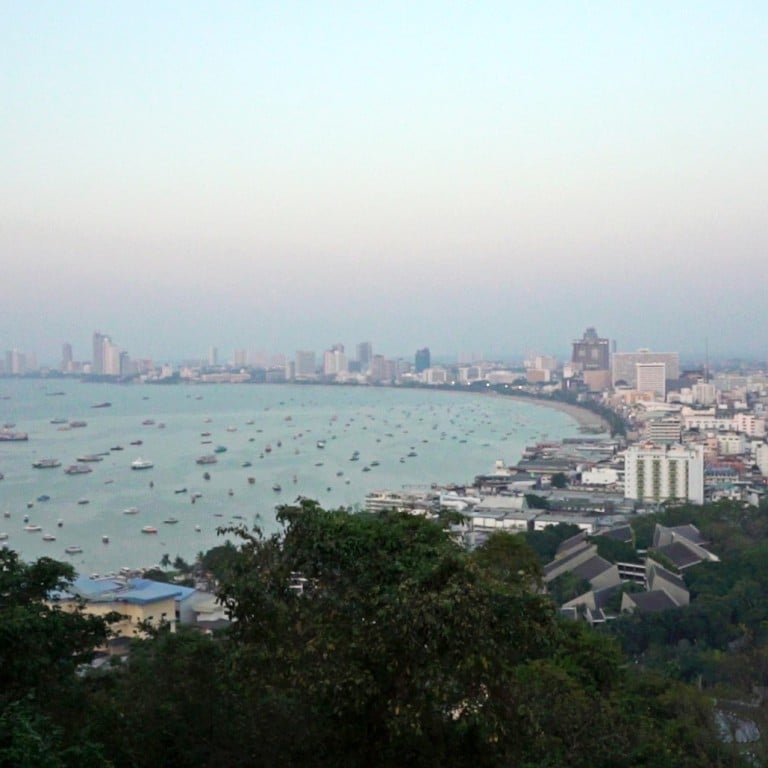
From Pattaya with love: forget sex trainers, meet the real Russians of Thailand’s party town
- The arrest of two ‘sex trainers’ – one claiming to have inside info on Trump’s election – has shone an unwanted spotlight on the Thai city’s Russian community
- Most Russians visit briefly but thousands have stayed, buying homes and starting businesses
This dissonance is even more pronounced inside, where the temperature seems to drop, silence descends and the bleached white light of the outside world is replaced by the flickering of dozens of candles. Murals adorn the ceilings and walls, flanked by a mixture of Thai and Cyrillic script.
Shelves are lined with hundreds of pocket-sized religious icons and books exalting the mission of the Orthodox Church. There is an abiding sense of peace – and plenty of decorative gold trim: gold altars, gold goblets, gold lecterns, gold on the carpets.
Father Roman Barodzich, on the other hand, wears only a plain black robe and a heavy crucifix around his neck. At 27, he seems young for a priest.
He has been in Thailand with his wife since November 2017, and the contrast between this most traditional of Russian environments and the decidedly un-Russian scenery outside is part of the appeal.
“Russian people like Pattaya. It was a small village but it’s now a big city,” he says. “The Thai people are very kind. I go out to the road and the Thai people are always smiling. It’s sunny all year, we have only summer here.”
All Saints was built a decade ago and is one of two Orthodox churches in Pattaya – linchpins of the Russian-speaking community that has grown here over the past two decades. According to official statistics, Russian arrivals soared from under 200,000 in 2006 to 1.7 million in 2013, before easing to just under 1.5 million last year.
In Pattaya, a new breed of Chinese tourist: meet the FITs
Most visit briefly but thousands have stayed, buying homes and starting businesses. There were 50,000 Russians on long-term visas in Pattaya in 2013, excluding Russian speakers from former Soviet states such as Belarus, Ukraine and Estonia. Their presence is evident on the city’s streets, in real estate agencies and restaurants featuring signs and menus in Russian.
Father Roman points out that the relationship between the two countries goes back even further, producing a photo from 1897 showing King Rama V’s trip to Russia, where he met Tsar Nicholas II. The warm personal friendship between the two leaders was no small factor in preventing Thailand – or Siam as it was then called – being colonised while much of Asia was divided up between European powers.
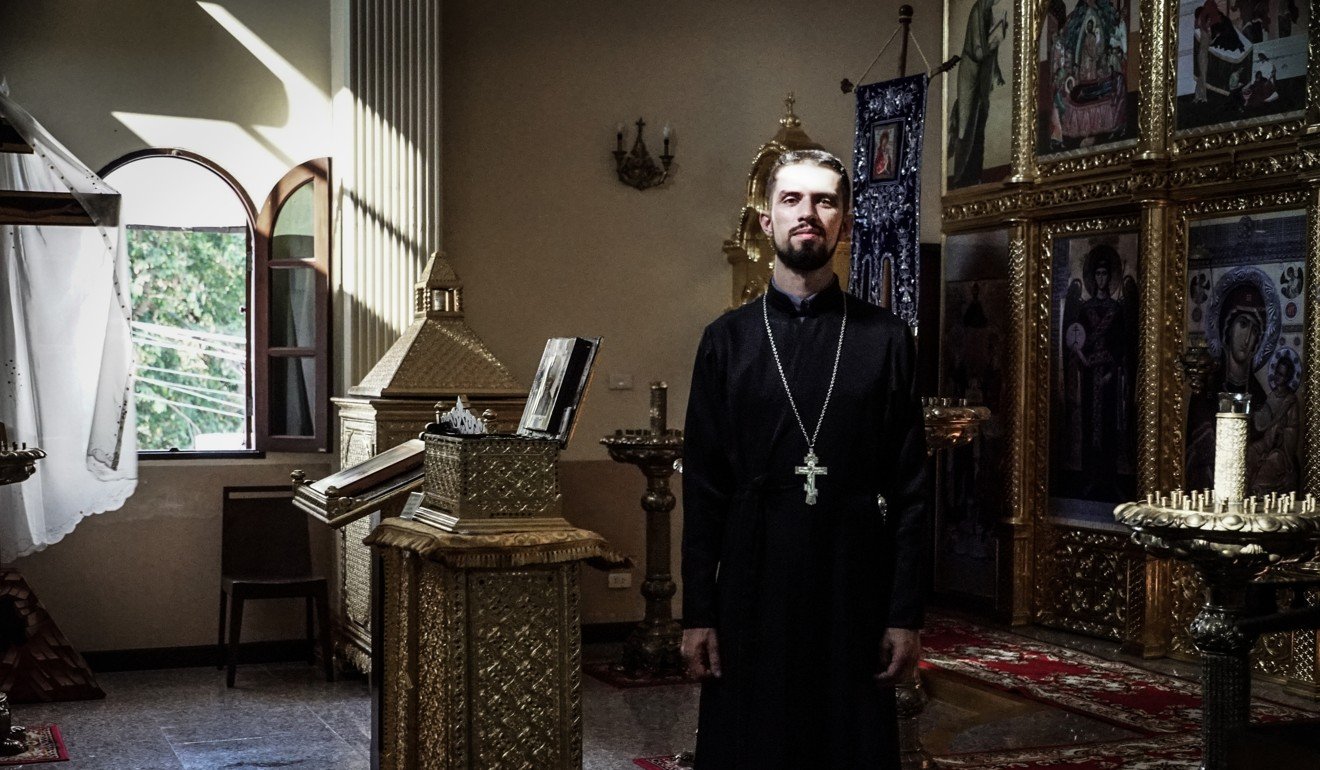
Listen to the Asia Briefing podcast: Thai election analysis and exploring Pattaya
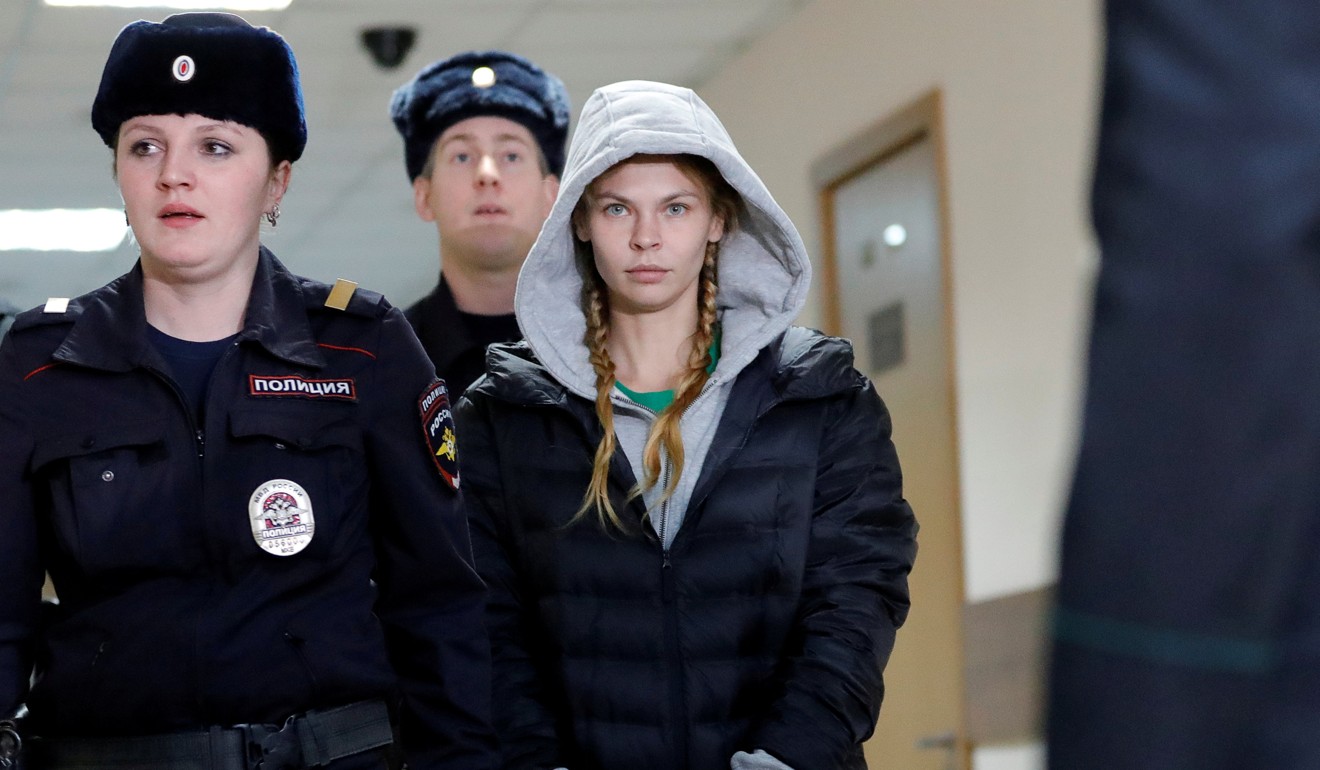
Pattaya, two hours’ drive southeast of Bangkok, was a fishing village until the Vietnam war, when hordes of American soldiers arrived for rest and recreation. Since then it has become a booming tourist destination, with an infamous sex industry.
Plenty of visitors come to explore the red light district around Walking Street, although the city also draws a mix of retirees, families and singles with no interest in that side of Pattaya.
The influx of visitors, and those who have settled, has made this the most Russian of cities in Asia. They chafe at the stereotype of their adopted city as a bottomless barrel of sex and sleaze. It is their home, and they are ready to defend it.
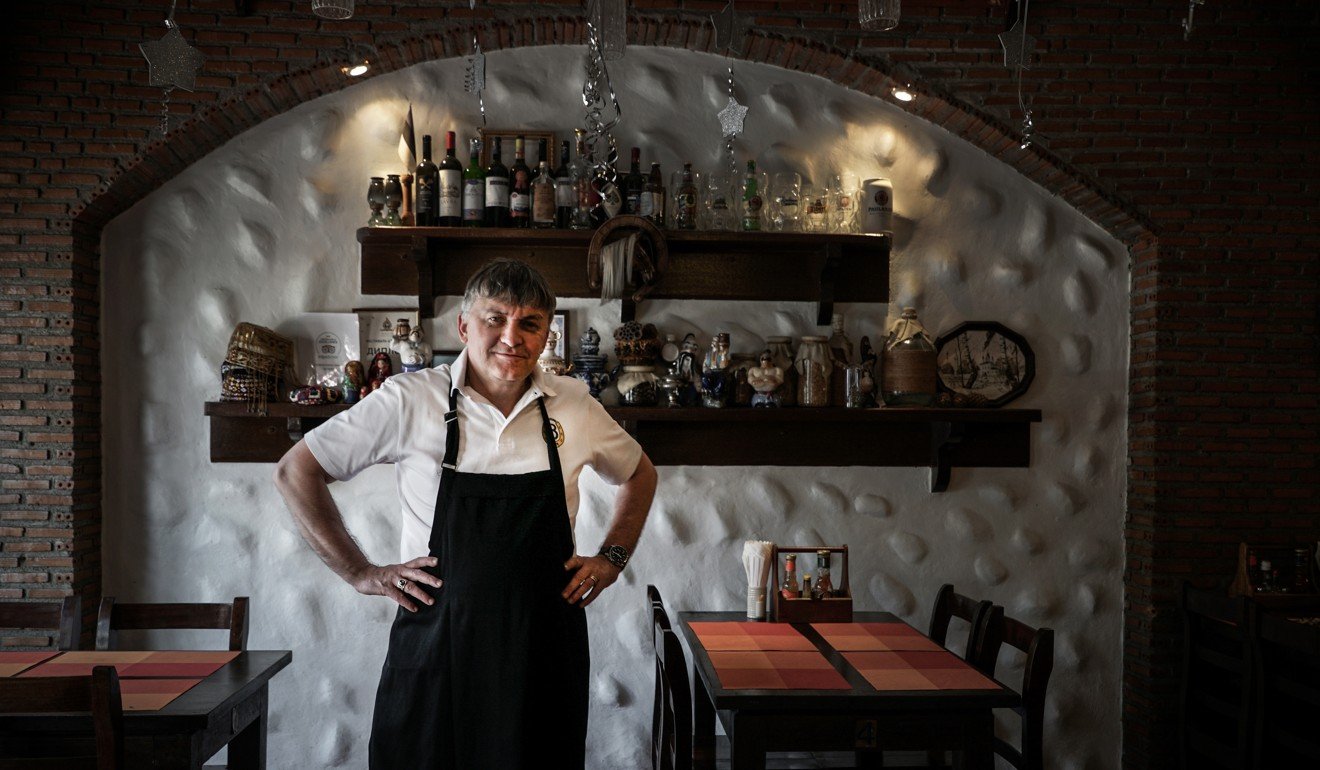
At the 8 Horseshoes Tavern, over bowls of borsch and glasses of vodka, Mikhail Ilyin recalls arriving in Pattaya 25 years ago.
“I came here in 1994 without any experience of travelling – it was my first time overseas and I didn’t know anything about Thailand,” says Ilyin, now 53. “I arrived with one shirt and some cash. In one month, I fell in love with this country and I tore up my return ticket.”
He found a job as manager of the first Russian restaurant in Pattaya and befriended travellers from his homeland, organising day trips and activities for them. He was so successful at this that he built his own office and opened the tavern on the ground floor. He met his wife, a Russian woman who also worked in tourism, and had children who have grown up in Pattaya.
Chinese tourists flocking to Pattaya for shows, food, property – but not sex
Not only does he serve Russian classics like okroshka (soup), golubtsy (meat and cabbage rolls) and syrniki (pancakes), he teaches visitors to cook Thai food. The cultural exchange has not, however, extended to Ilyin learning to speak Thai.
“The best way to learn a foreign language is in bed,” he quips. “But in bed, I speak Russian.”
Ilyin has watched Pattaya’s Russian-speaking community grow over the years. More tourism sparked a property development boom, with Russians buying thousands of condominiums.
“In the 1990s, there were no more than 50 Russians living in Pattaya and everybody knew each other,” he says. “Today, many Russians don’t feel Thailand is a foreign country. There are a lot of flights, the fares are very cheap. Many people feel like travelling to Pattaya is like travelling to another city in Russia.”
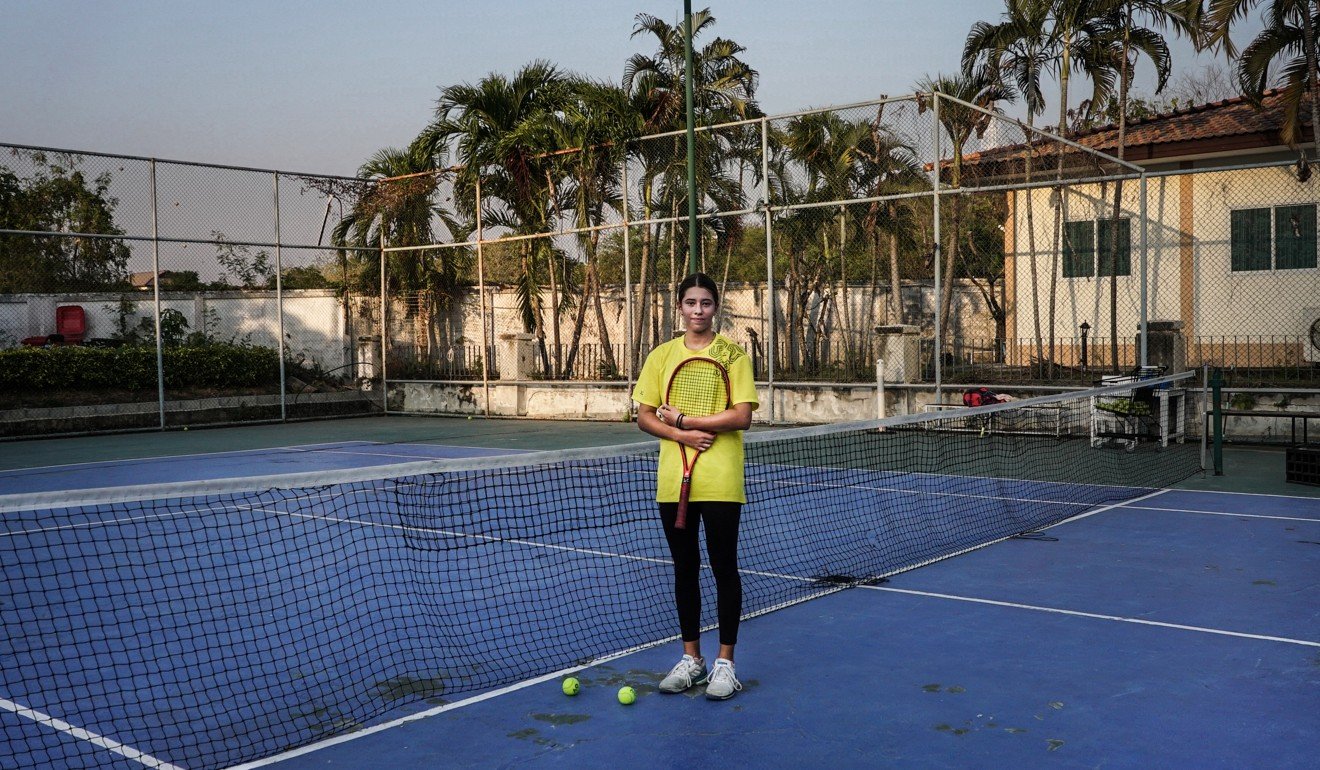
In the southern suburbs of Pattaya, about a dozen children are finishing their tennis lessons on blue hard courts rimmed by banana trees and a row of neat town houses on the other side of a mesh fence.
Daria Nazarenko, 14, was five years old when she moved to Pattaya from Omsk in Siberia, where temperatures plunge to minus 20 degrees Celsius in winter.
Now she has set her sights on becoming a professional tennis player, and already has a profile on the International Tennis Federation’s website.
“It used to be a dream but now it became a goal,” she says. “I practise daily. I find inspiration from the pro tennis players I see on TV.”
Pattaya reinvented: has Thailand’s ‘sex capital’ cleaned up its act?
Daria lives with her mother in Pattaya, where she is home-schooled. She occasionally returns to Russia to visit family, including her father and grandparents.
“My mum says I’m acting like a Thai person now,” she says. “Most Thai people are shy and Russian people are outgoing, but I feel I’m more like the shy people. I like the weather and the culture. I’m more familiar with Thai people than Russian people. The Thais are very kind-hearted.”
Having spent more than half her life in Pattaya, Daria sees her future in the city.
“There are more opportunities,” she says. “There are things you can do easily here, more easily than in Russia, like find a job. Pattaya is home. Now that I play tennis here, I can’t go back to Russia because it’s my life.”
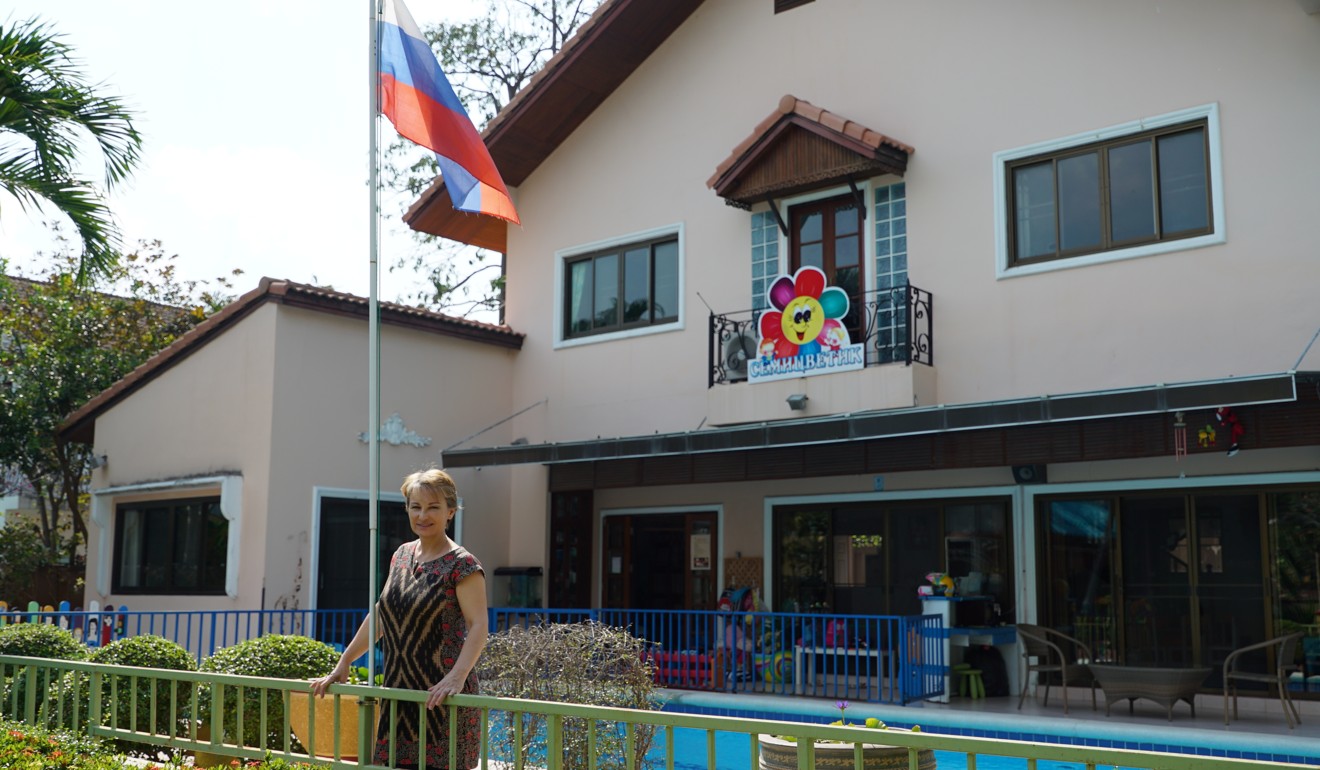
Irina Novikova hails from Sochi, on the Black Sea near the Russian border with Georgia. She moved to Pattaya 12 years ago and drew on her background as a primary school teacher to open the 7 Flowers kindergarten.
“The number of Russian people grew every year and they needed to have a familiar place where they could leave their children,” says Novikova, 50, who lives in Pattaya with her two daughters while her husband works overseas.
At first, her pupils were all Russian-speaking, but now there are Thai children too.
Novikova says of her Thai pupils: “Their parents usually have business with people who speak Russian and they’re thinking ahead about how their children will continue their business.”
What’s really behind Thailand’s hostility to Chinese tourists?
The school has 30 children. The main kindergarten group is for those aged two to seven, though Novikova also takes in younger children and has a primary programme for those up to 12 years old.
Three teachers provide a Russian curriculum that covers maths, speech development, literature, art and physical training as well as foreign languages, including Thai.
“Russian people are connected very strongly with their country,” Novikova says. “They love Russia, they try to keep their language, culture and customs even here in Thailand.
“Children brought up here are children without boundaries, children of the world.
“They can easily change countries without feeling it is something new and unknown for them.”
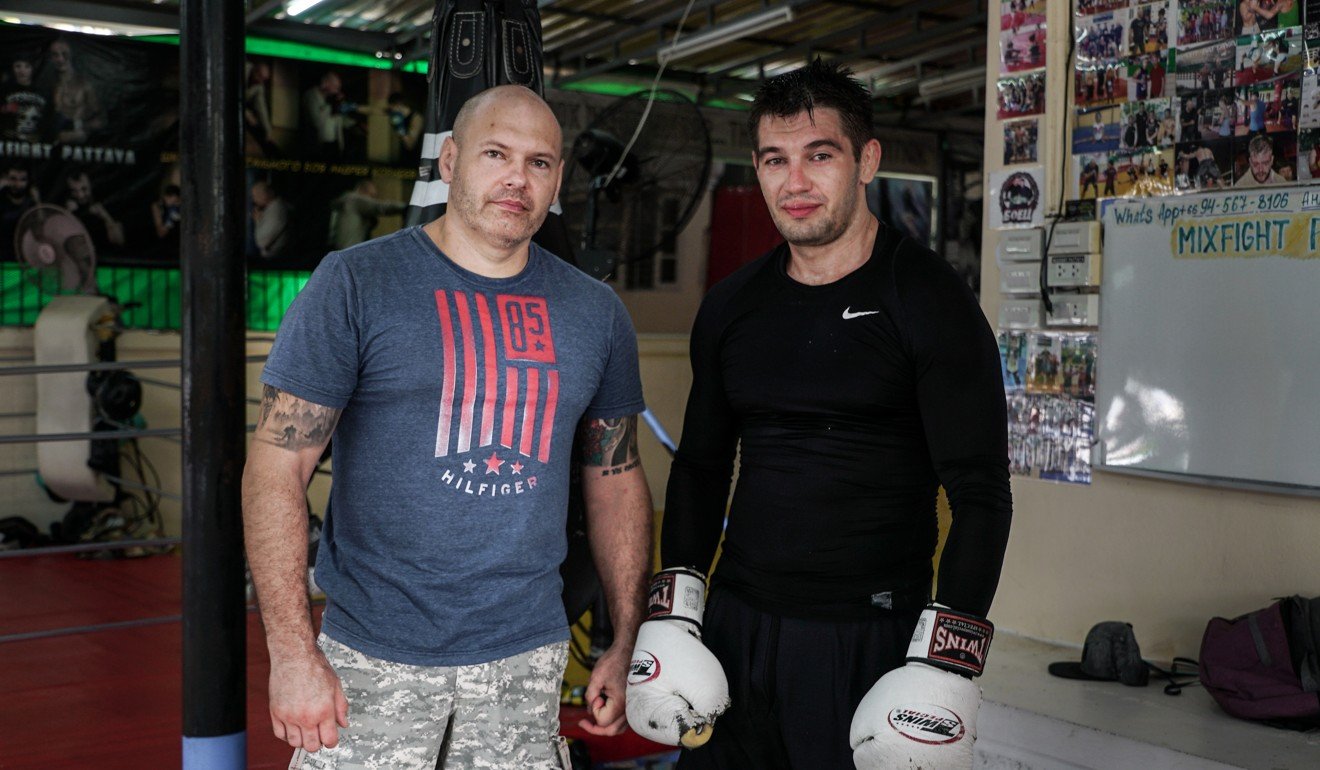
On the same street as 7 Flowers, the MixFight Pattaya gym echoes with the steady thwack, thwack, thwack of clenched fists colliding with heavy punchbags. A ring for sparring is set up in one corner.
Ceiling fans whirr overhead. Fight promo posters cover every square inch of wall space, alongside photos showing Andrey Korneev, the gym’s director, with dozens of fighters he has trained.
Korneev, a 44-year-old champion kick-boxer, moved to Pattaya six years ago from Moscow, where he trained the Russian national mixed martial arts team.
His English is patchy, so Nazar Moroz – a former boxer who trains children at the gym and manages fighters – translates.
“He loves it here and doesn’t want to go back to Russia,” Moroz says. “Pattaya doesn’t have so much aggression, not so much tension. He says he can just concentrate on doing his job.”
Thailand chases Chinese money, but at what cost?
Moroz, 34, who is from Ukraine, has been in Pattaya for three years. He says the gym’s customers are mostly foreigners as the Thais prefer their own form of kick-boxing known as Muay Thai.
Done with partying Pattaya-style, Moroz says he now prefers the quiet life with his Korean-Russian fiancée, who prepares Russian meals at home. On their days off, they like going to nearby islands.
“It takes no more than 30 minutes,” he says. “And no partying. It’s boring. I’m not 18 years old, when I was partying every day. I’ve had enough, probably.”
He is bemused by people who assume Walking Street reflects the entire city.
“There are many good places – pretty and clean beaches – where tourists normally don’t go,” he says. “People from around the world should explore more locations and they’ll really enjoy this area.”
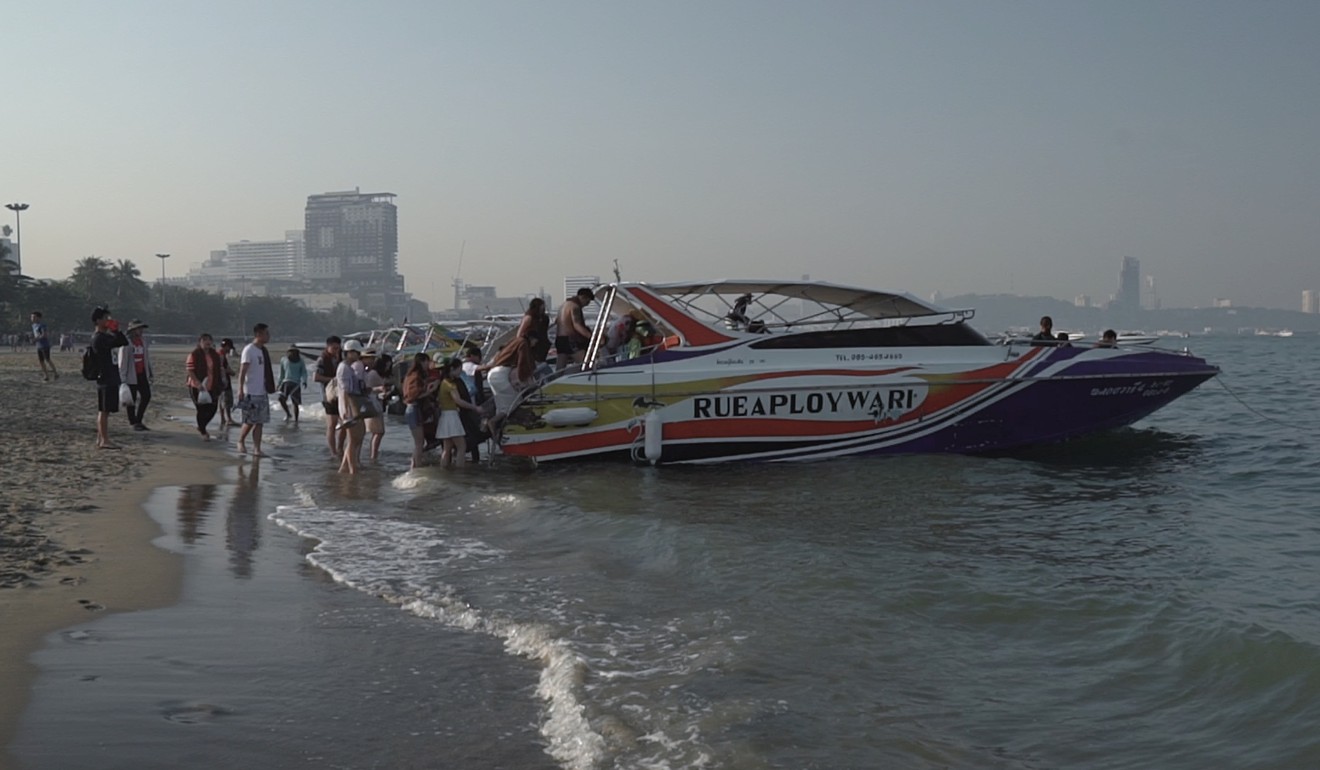
Ekasit Ngampiches is president of the Pattaya Business and Tourism Association. Working in the hotel industry and real estate, he has seen Russians arrive as tourists before settling, starting businesses and buying property in Pattaya.
He notes, however, that the decline in the value of the Russian rouble in recent years has taken its toll, with a drop in the number of visitors, who stay for fewer days than previously. Some Russians who had put down payments on condominiums just upped and left. But he says the Russians of Pattaya have been embraced by the locals, more or less.
Why are middle-class Chinese moving their money abroad?
“During the past 20 years, Pattaya has welcomed visitors from a variety of countries and cultures,” he says. “It might take them a little bit of time at first, but the Thais adapt and learn these new cultures very quickly.”
Ekasit explains that although Russian visitors and expats do tend to spend more money at Russian-owned businesses in Pattaya, it is standard practice for all foreign businesses in Thailand to be set up in partnership with locals.
“Russian visitors are very important to Pattaya as they are the nationality [that visits most], after the Chinese,” he says. “The fact that they have immigrated to Pattaya has brought a significant impact to the city in terms of economic benefits.”
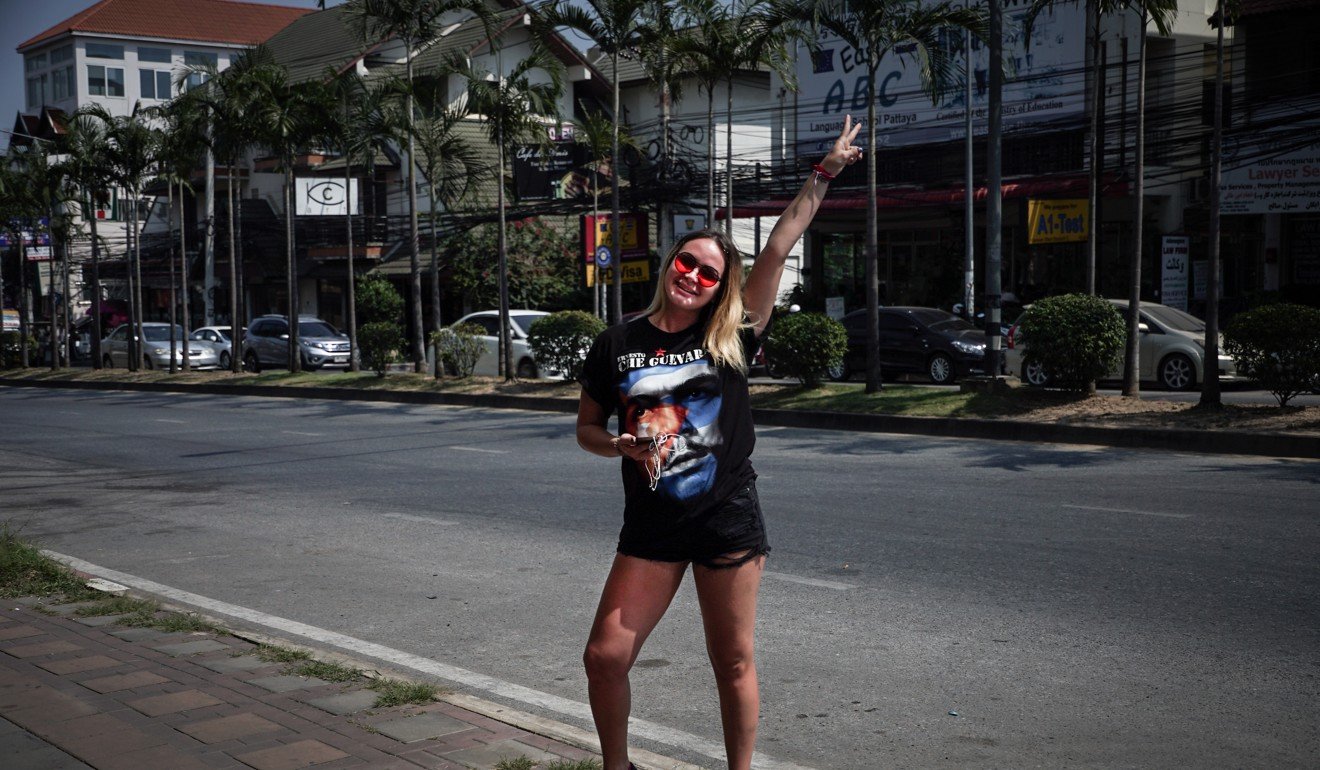
Long-time residents may not bother with Walking Street, but its appeal to visitors is hard to dispute. There are reportedly 27,000 sex workers in Pattaya at any given time and Walking Street is the nerve centre of the sex industry.
Every night, the 800-metre strip alongside the beach vibrates with activity, overloading the senses. There are bars of every shape and size, some with live bands, some blaring electronic dance music. The inside of the go-go bars are mostly concealed from view but some of them advertise “Crazy Russian Girls” in blinking neon lights.
“Nadya” – her stage name – is a 27-year-old dancer from Novokuznetsk whose first overseas trip brought her to Pattaya last October. She works in a go-go bar six days a week.
“I worked in Russia as a store manager,” she says. “But in the space of one month I lost everything: my job, money and boyfriend.”
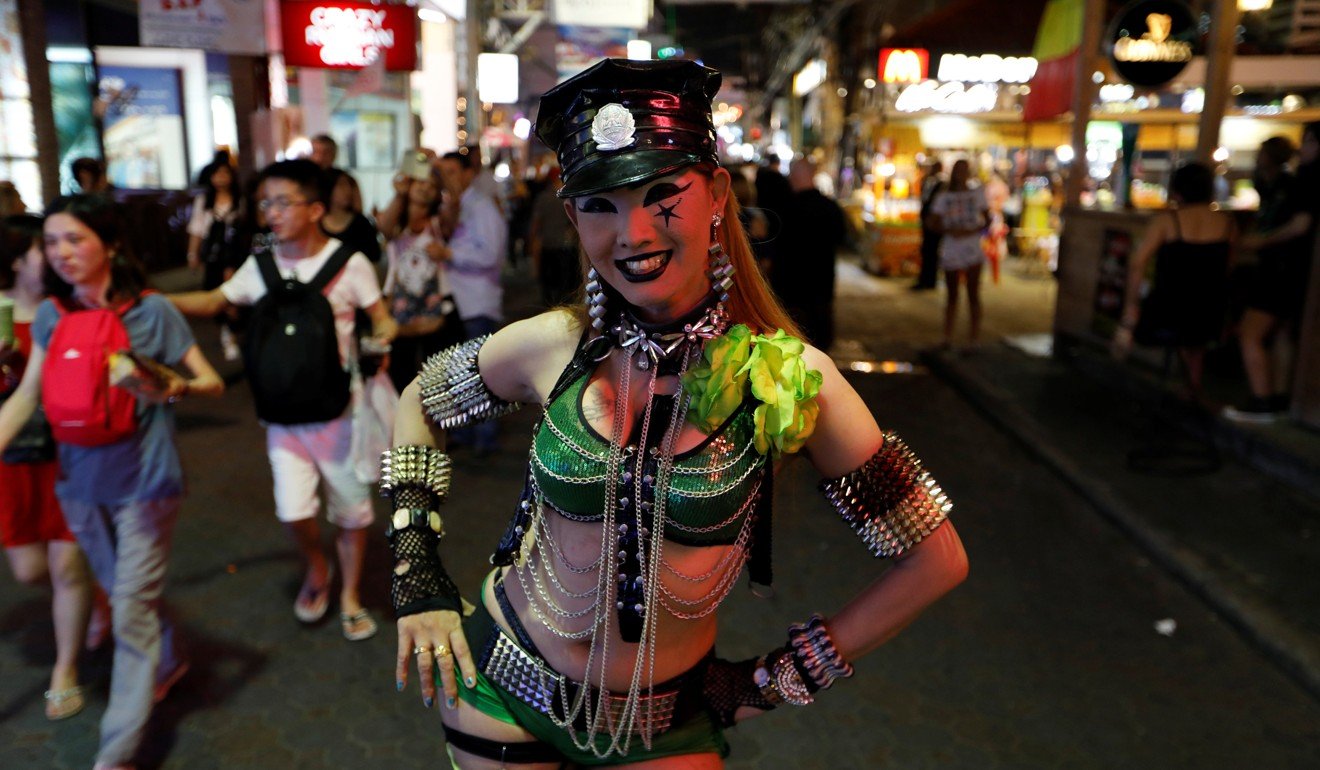
In Pattaya, she found a place where she thought she would get dance training and accommodation.
“But it was not what I expected,” she says. “If I knew the ‘speciality’ of Pattaya I would never have come here, because everybody thinks I’m selling my body for sex. I don’t provide this service.”
Nadya says she is depressed and wants to leave but cannot afford to break her contract as that would mean repaying the club where she works and paying her own costs.
When she is at work she feels “like a horse at the market” and the club’s male patrons assume she is for sale.
“When I tell them that they can’t have sex with me, their eyes go wide. They ask me: ‘Why?’ So surprised,” she says. “You can see how Pattaya influences people’s minds. My reality of Walking Street is one big bordello.”
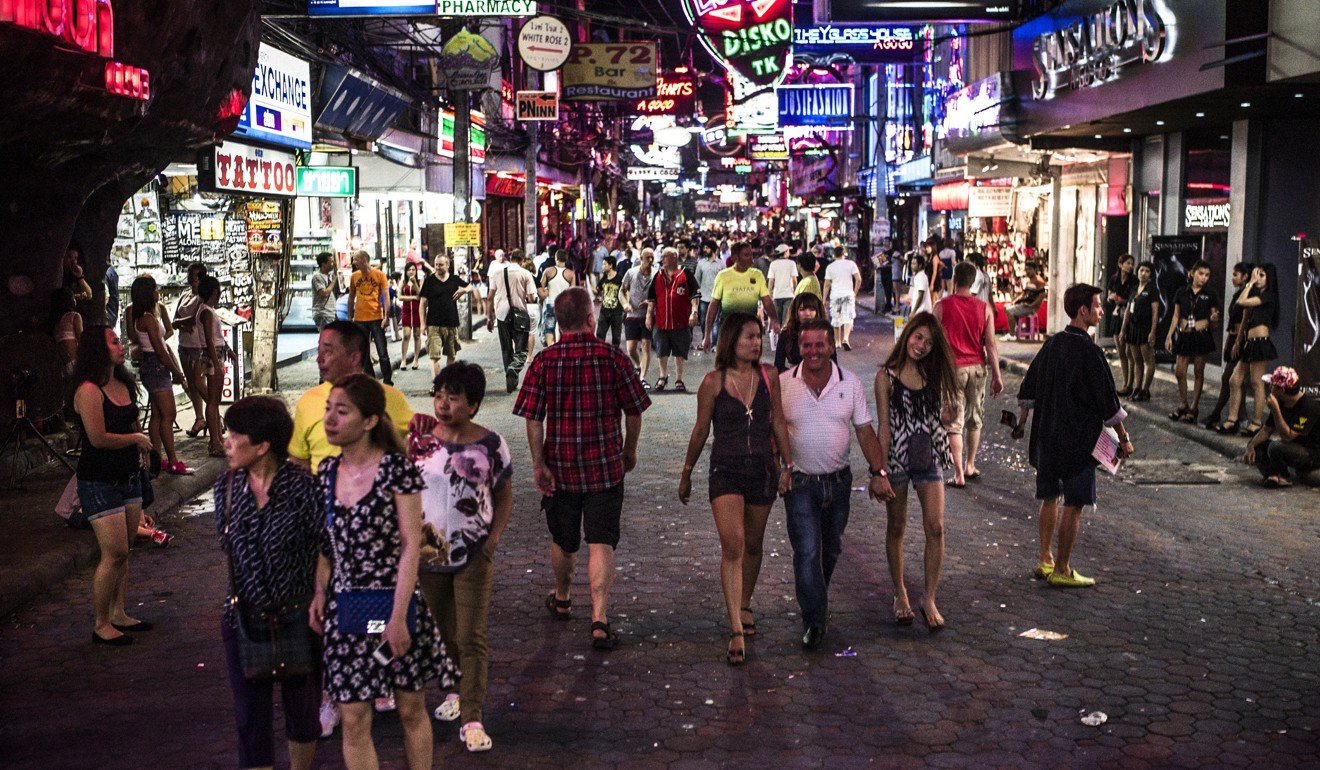
At All Saints Church, Father Roman is preparing for the day’s second prayer service. He points out an icon of Saint Nicholas, the patron saint of sailors and travellers, who was also known as Nicholas the Wonderworker. For Russians, he’s the problem-solver, the saint who will get them out of a jam.
“Russian people pray to St Nicholas,” he says. “If they take a trip, they pray for good travel, to not have any problems with tourism police, to not have any problems with visas.”
Father Roman loves Pattaya, which he hails as a “very beautiful city”. But the sex industry troubles him. It shapes his mission.
“I go and walk in the street – I see the situation. In bars, a man with a woman – he doesn’t like churches,” he says.
“We believe Jesus Christ helps the people who don’t go to church, who don’t understand. Many people go to Pattaya for the sex industry – in my opinion this is a problem … Every day, we pray for this town, for this city.” ■
